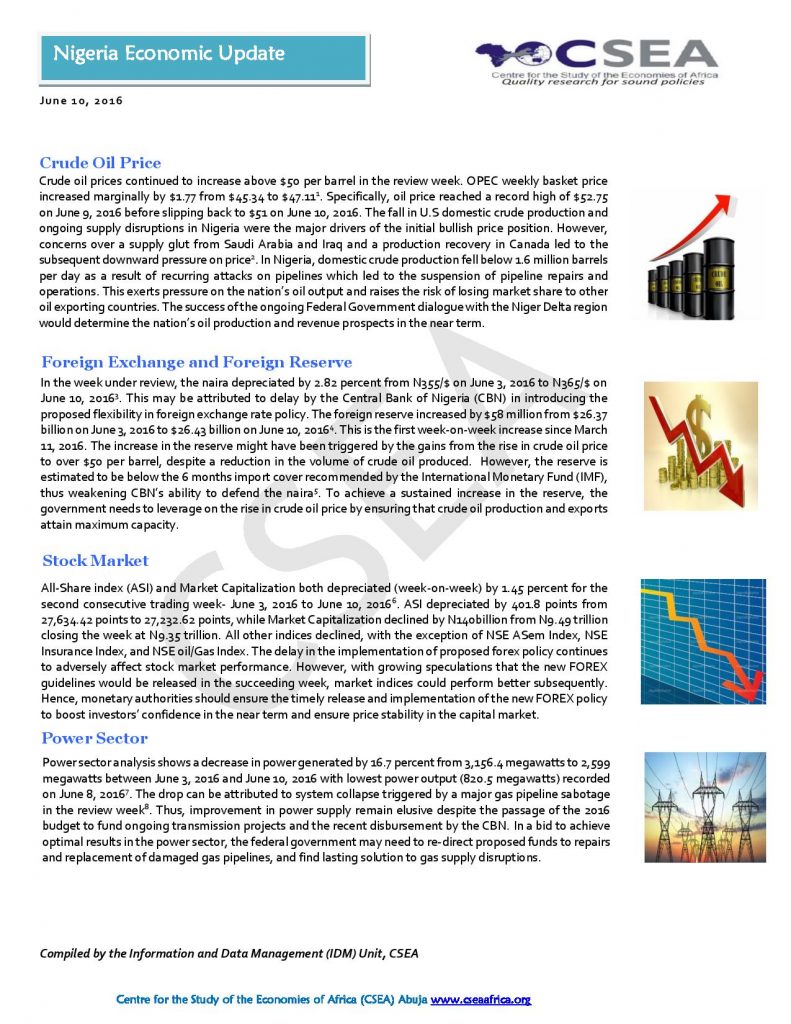Macroeconomic Report & Economic Updates

July 10, 2017
Nigeria Economic Update (Issue 26)
Power sector statistics indicates a huge decline in power generated in the week under review (June 23, 2017 to June 30, 2017). Power generated, attained a peak of 4,305 MW on June 23, 2017 but fell significantly by 33.1 percent to approximately average of 3,000 MW as at June 30, 2017. The huge decline is attributable to continued poor payment and inability of most GENCOs to pay for gas supply and a system collapse. Consequently, power sector lost huge prospective funds; and daily power supply reduced to 4.5 hours per day7. Going forward, improvement in energy supply is critical to domestic production, job creation, and diversification agenda of the government.
Related
Transparency Deficits In The Disclosure Of Oil Sector Information In Nigeria
This brief examines the challenges in the discharge of
statutory transparency roles by strategic regulatory institutions in the oil
sector and also identifies policy interventions to improve access to
information on key oil sector processes and transactions.
Nigeria Economic Update (Issue 22)
Power
sector analysis shows a decline in power generated by 15.07 percent from a peak
of 3,424 mw to 2,908 mw between May 8, 2016 and May 15, 20169. The
declining power supply is attributable to vandalism of pipelines and gas
shortages, which has a debilitating effect on power generation. As part of the
efforts by the Federal Government to improve power supply in the country, the
Bank of Industry (BoI) is currently funding intervention projects to provide
alternative source of energy (solar) in rural areas across the country10.
Since the major problem facing power generation in the country is gas
shortages, the government should make concerted efforts to combat vandalism.
Issues In Fiscal Policy Management Under The Economic Reforms
This paper was produced as part of a larger project which was jointly financed by the UKDepartment for International Development in Nigeria (through its Policy and Knowledge facility)and the Research Committee of the World Bank.
